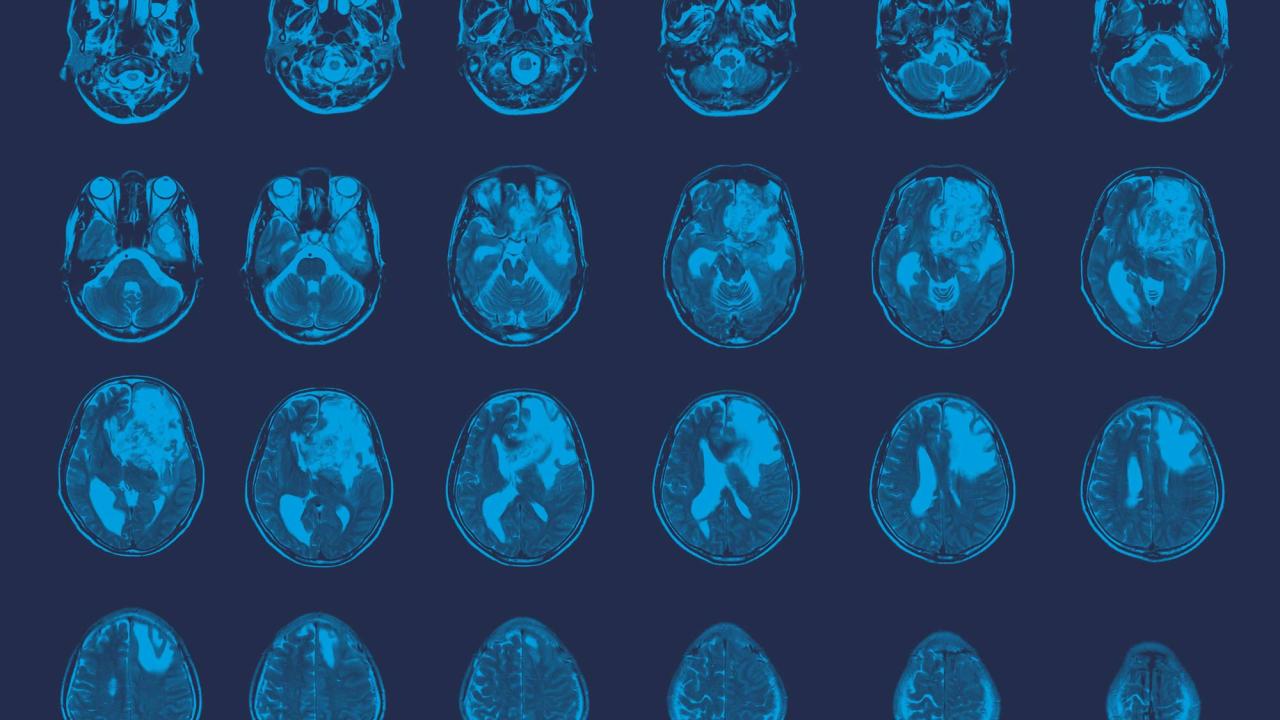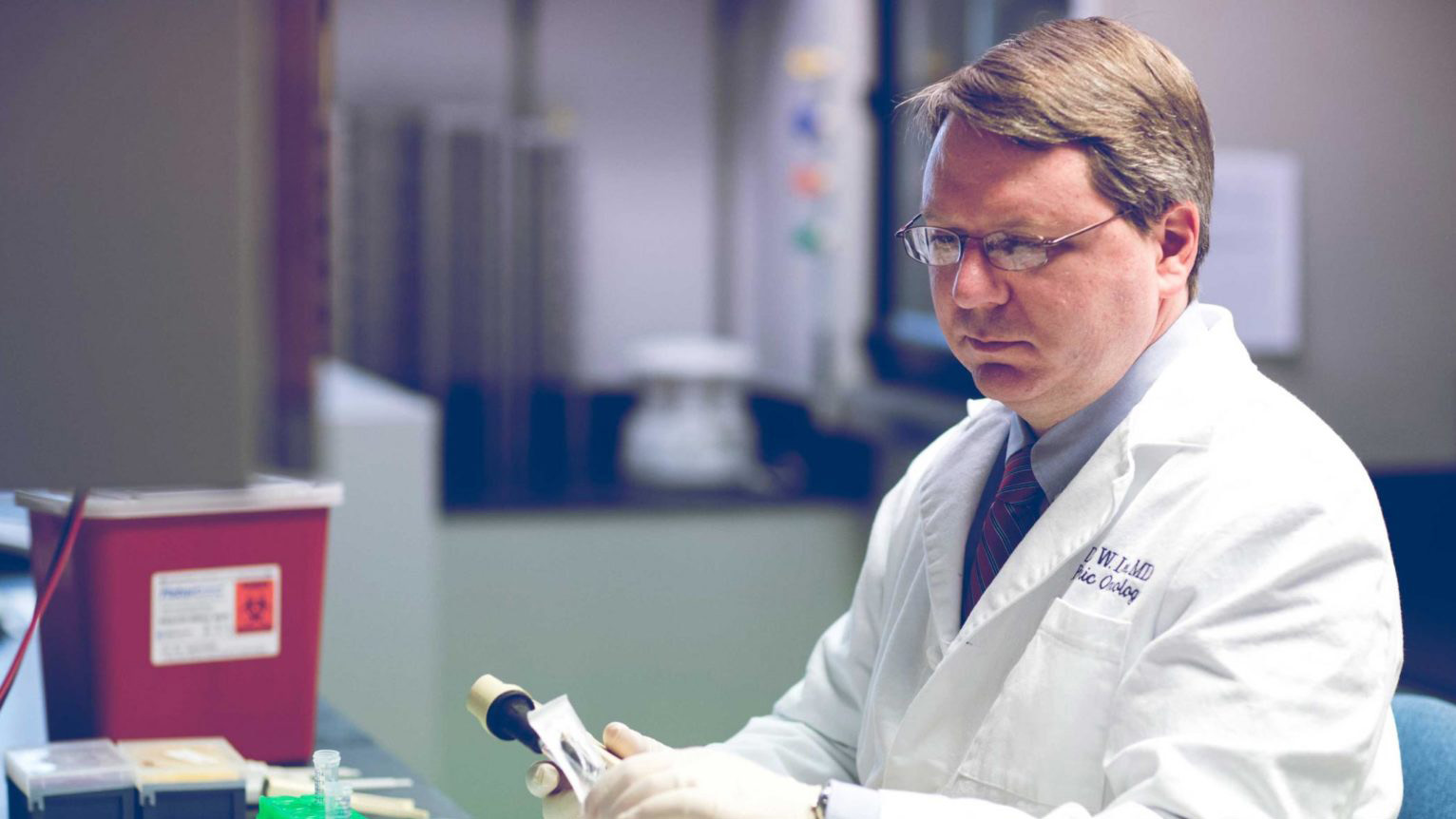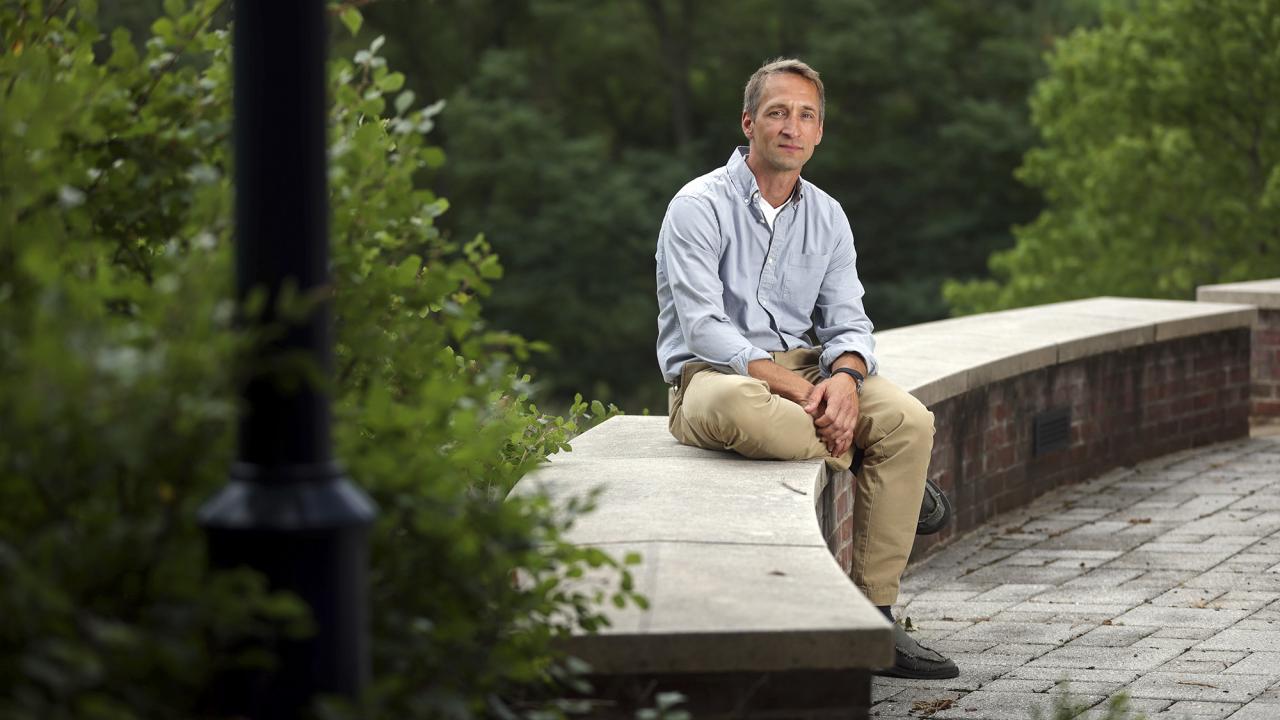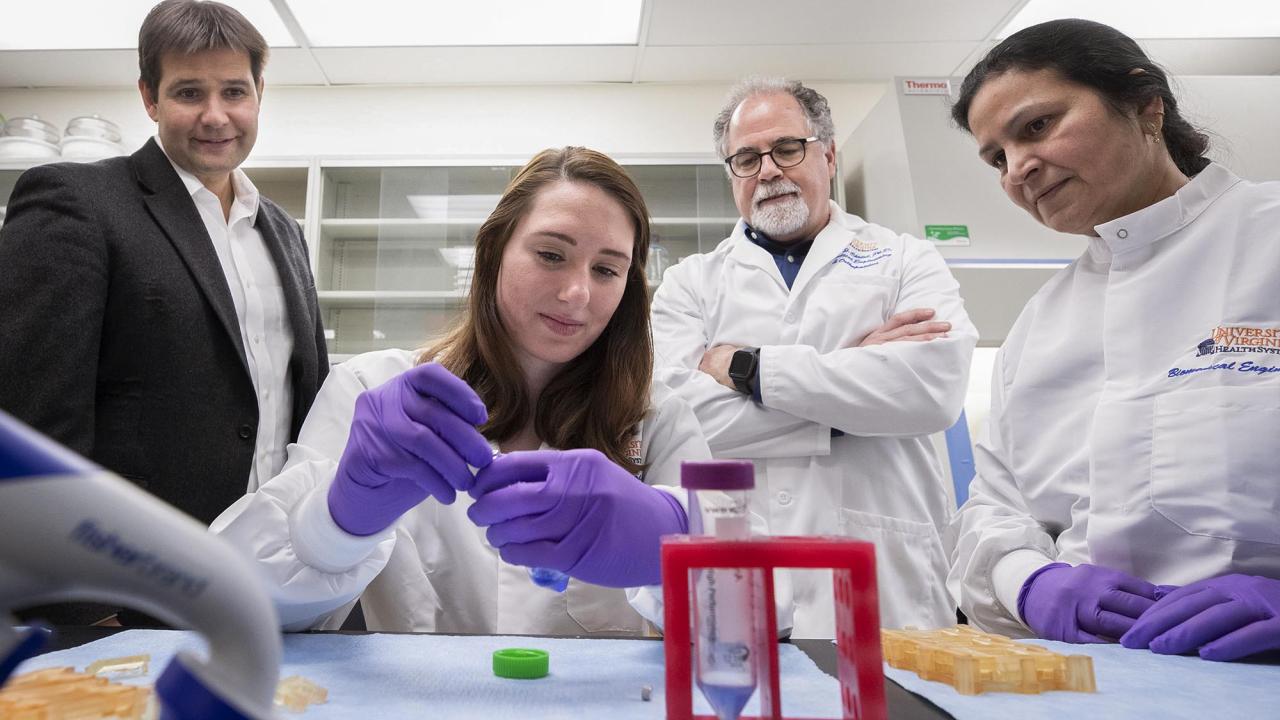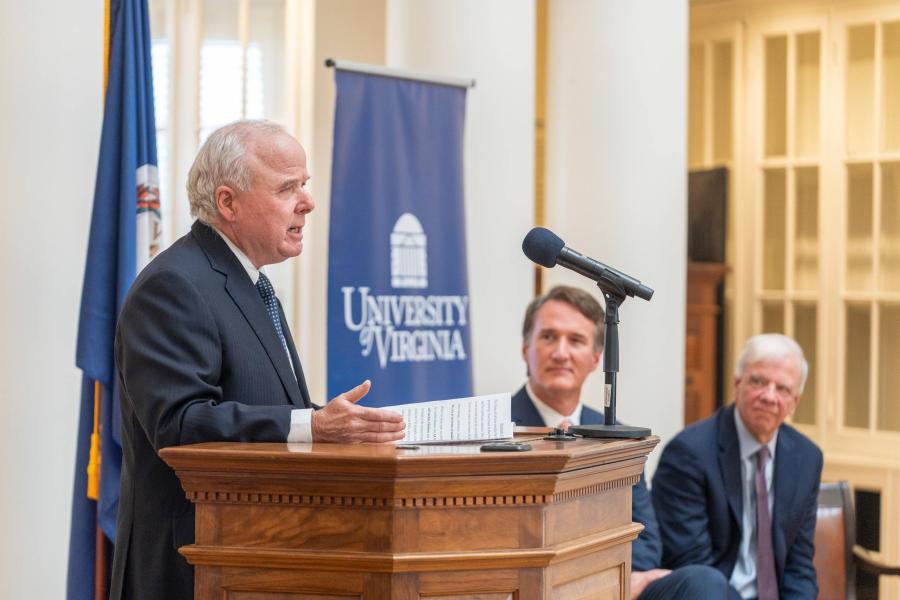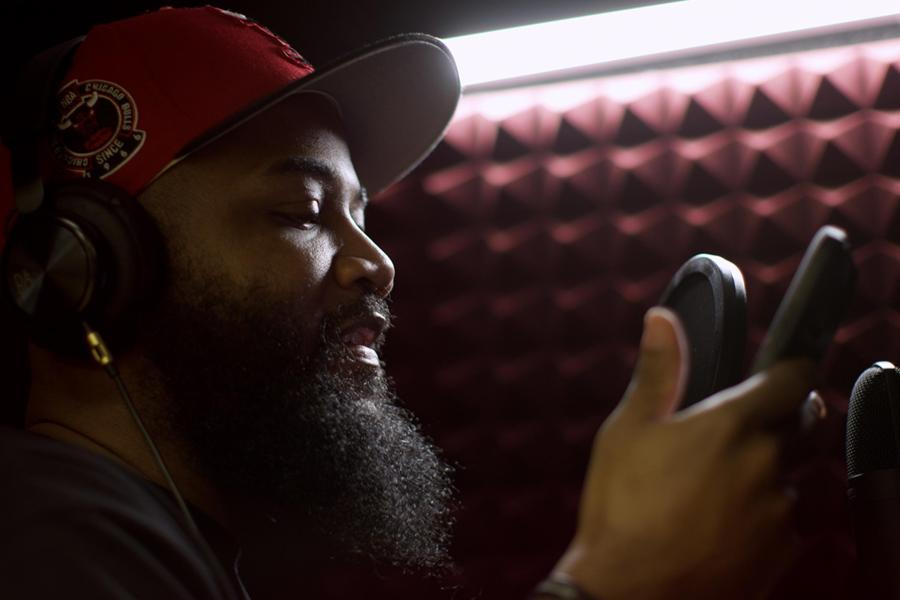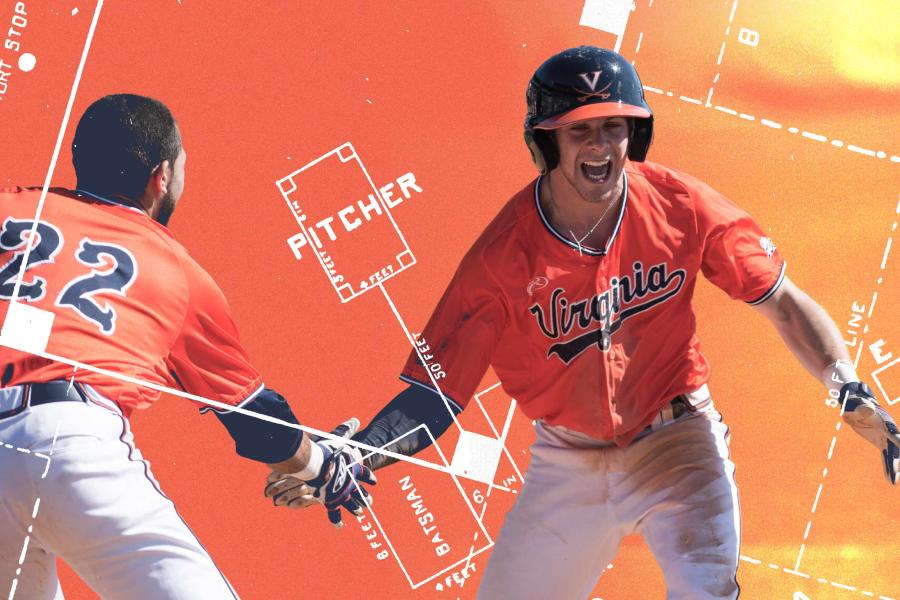With the announcement of The Paul and Diane Manning Institute of Biotechnology at the University of Virginia, you may be asking yourself: "What exactly is biotechnology?"
If so, you're not alone. The term is familiar, yet it has been so broadly invoked as to be unclear to many people.
In medicine, one might think of the latest gene therapies, for example. But biotechnology has been associated with breakthroughs in everything from agriculture (biofuels and genetically modified crops) to consumer products (detergent enzymes and skin care).
UVA Today spoke to Dr. Richard Price, a biomedical engineer who co-directs the UVA Focused Ultrasound Cancer Immunotherapy Center, about the definition of biotechnology and the role it plays at UVA Health.
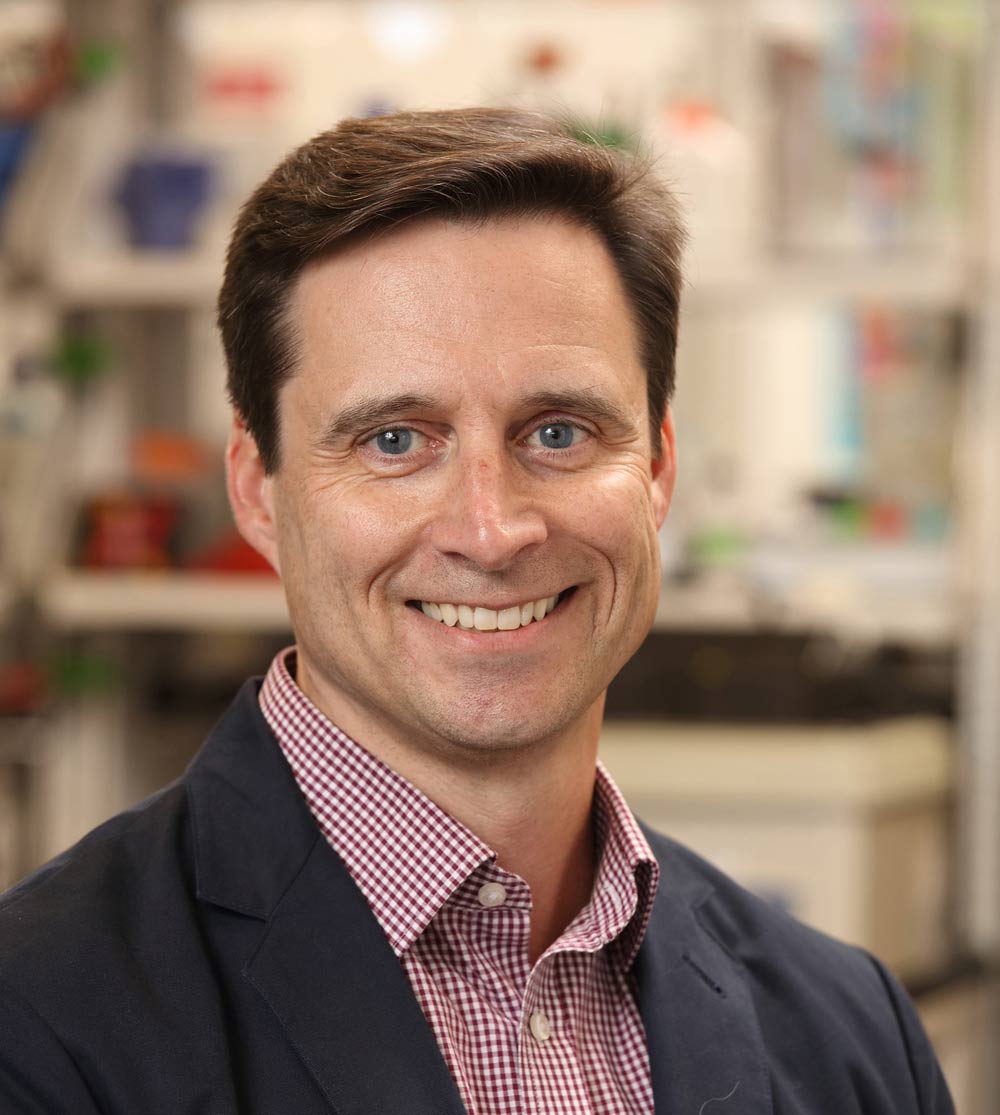
Dr. Richard Price is the Lawrence R. Quarles Professor of Biomedical Engineering. He co-directs the UVA Focused Ultrasound Cancer Immunotherapy Center and is a professor of radiology and medical imaging. (UVA Health photo)
What Is Biotechnology?
Price said context helps when discussing what biotechnology means.
"To me, the term 'biotechnology' has conventionally meant the process of modifying organisms, typically cells in culture or bacteria, to be machines that create a beneficial product," he said. "These are often substances and drugs that are used in health care."
But he said the field can, and arguably should, be viewed more broadly.
"At UVA, while important research under my more conventional take on biotechnology is robust and important, I think we also include a broader perspective," he said. "To me at least, biotechnology at this institution also encompasses engineering new technologies and devices, not necessarily organisms, that improve human health. Such research has an eye toward helping patients right from the start."
UVA's chemists and medical researchers have been working for decades in the biotech space. The University, as a result, has a renowned Biotechnology Training Program for graduate students - one of only 19 such programs in the nation.
For the purposes of The Paul and Diane Manning Institute of Biotechnology, the focus will be specifically on translational medicine - the highly collaborative "bench-to-bedside" approach that speeds innovations from laboratory benches to the real patients who need them.
What Is the Future of Biotech at UVA?
Through the institute, UVA will continue to build on its expertise in medical biotechnology. The effort will benefit in particular from UVA's newly enhanced ability to manufacture gene and cell therapy solutions at a large scale to support clinical trials and other essential steps in the development process toward FDA approval.
To get a sense of what the future holds, it's worth looking to the recent past. Here are a few of UVA Health's latest breakthroughs.
UVA Researchers Pioneer Cancer-Fighting Immunotherapies That Infuse Hope
Cancer immunotherapy works by weaponizing immune cells to perform what are, in essence, highly precise drone strikes on cancer cells.
Discovery Points to Better Treatments for Brain Tumors
New research identifies vulnerabilities on brain tumors that CAR T-cell immunotherapy could attack.
Stem Cell Transplants Prevent Relapses of Most Common Childhood Cancer
UVA researchers identify a way to prevent relapses in children who receive CAR T-cell therapy for acute lymphoblastic leukemia.
World's 1st Focused Ultrasound Cancer Immunotherapy Center Launched - UVA Health Newsroom
Focused ultrasound cancer immunotherapy is opening new fronts in the war against many different cancers, from breast to brain tumors
UVA School of Medicine Scientist Awarded $9 Million From Howard Hughes Medical Institute
Jochen Zimmer, a professor of molecular physiology and biomedical physics, has been named an investigator by the institute, an honor considered among the highest a biomedical scientist can achieve.
Engineers Develop Device to Automate Tissue Manufacturing for Muscle Repair
Recovery from life-altering muscle injury may become possible through a technology under development at UVA.

